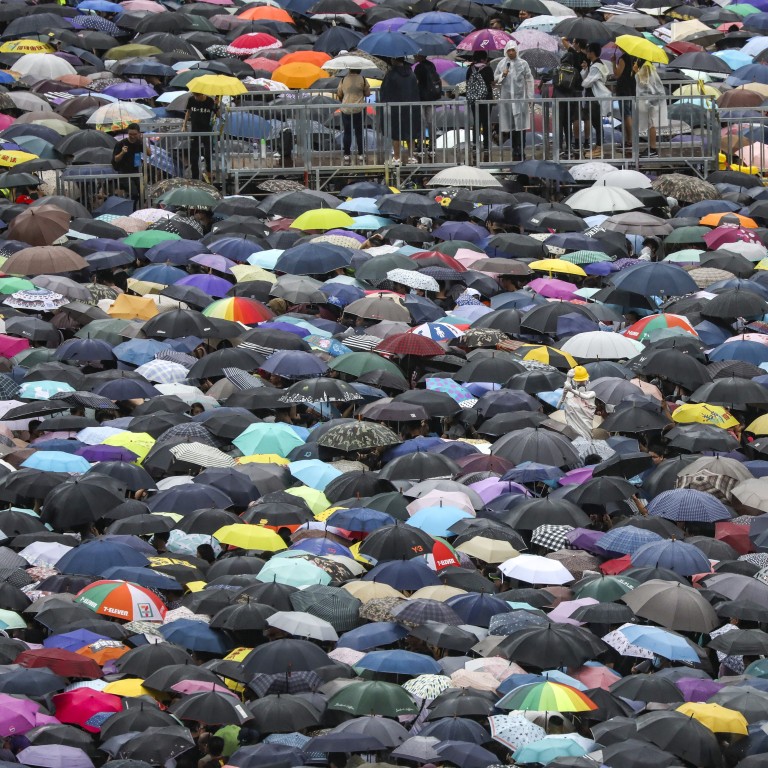
‘Hongkongers, not expats’: the foreigners who say they have joined the protests out of a sense of responsibility to their adopted city
- Both long-time residents and more recent arrivals, they say they fell in love with Hong Kong and admire protesters for standing up for their rights
- Some have joined marches while others are active in civic society, helping with protest material and translations
When Richard Scotford learned about the Hong Kong extradition bill protests, he could not help checking his mobile phone every five minutes for the latest news.
He was halfway across the world in Costa Rica, where he moved last year from Hong Kong with his wife and daughter, to be closer to nature.
“If the protests had happened last year, I wouldn’t have left,” he says. “My body was in Costa Rica, but my heart was here.”
One day, his wife told him: “Go back to Hong Kong.” He bought a plane ticket straight away and returned in early August for 10 days.
“I wanted to support the protests,” says the 47-year-old Briton, who considers himself a Hongkonger at heart and is a citizen journalist contributing to various online media sites in the city.
He is one of a number of foreigners who have become familiar faces at the ongoing anti-government protests, now in their fourth month, even though the city’s leader has said the bill itself will be withdrawn. Others include long-time residents and those, like Scotford, who consider Hong Kong home and feel solidarity with the protesters.
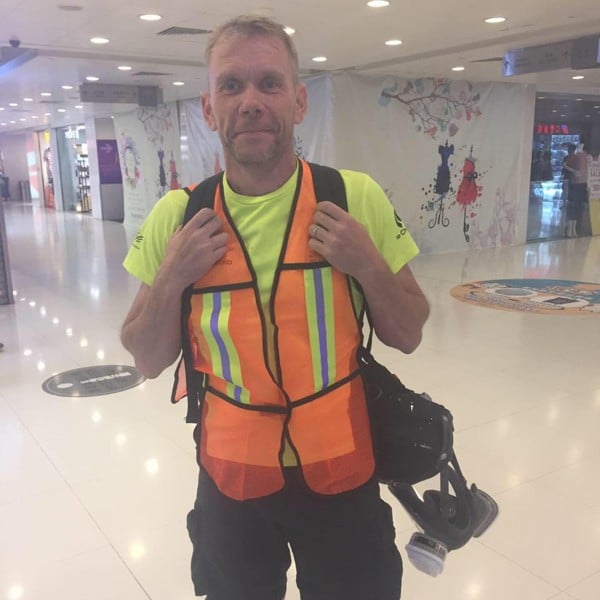
If the protests happened last year, I wouldn’t have left
Scotford first set foot in Hong Kong in 1996 as a 24-year-old, fell in love with the city, started an adventure business, got married to a local woman, and settled down.
They moved to Central America with their eight-year-old daughter last year to be closer to nature.
Scotford was also a regular at the 2014 Occupy movement protests, which shut down several parts of Hong Kong for 79 days.
The 2014 protests made a lasting impression, he says, especially the day the protesters were tear-gassed in Admiralty.
While in Hong Kong last month, he attended every protest and was often seen on the front lines in his yellow press vest.
As Hong Kong has been rocked by unrest for 13 weeks, clashes between protesters and police have became increasingly violent, leading to massive arrests and multiple injuries, some severe.
Some radical demonstrators have hurled bricks at officers and police stations, started fires, thrown petrol bombs, blocked roads, vandalised facilities such as those inside MTR stations and at the Cross-Harbour Tunnel.
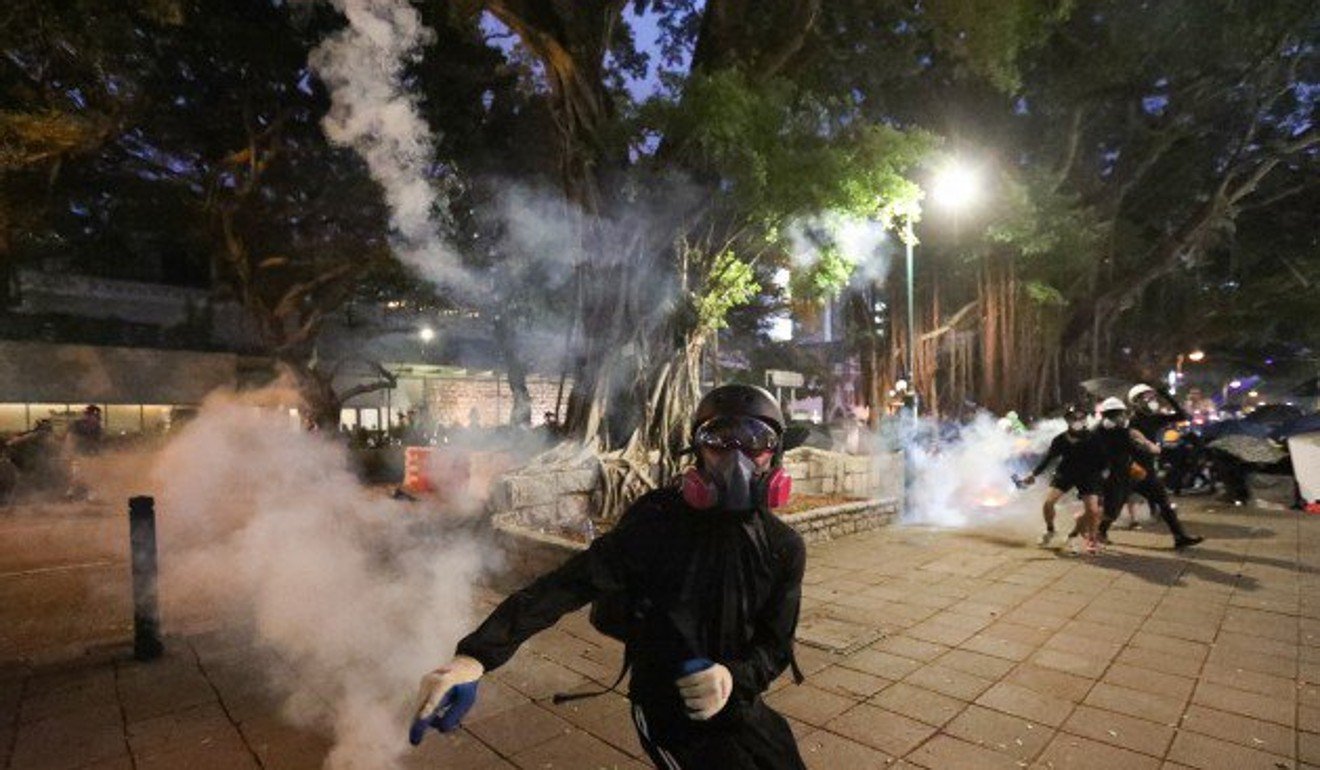
Police officers have also stepped up their use of force, deploying tear gas and pepper spray on a regular basis.
Scotford has himself witnessed some of the clashes. He was at Tsim Sha Tsui on August 11, when a young woman near him suffered a serious injury to her right eye, allegedly by a police beanbag round.
Demonstrators had besieged the local police station for hours and the popular shopping area around the compound became like a war zone as officers fired tear gas and beanbag rounds.
“I saw something whizz past my face just before the girl was shot,” he recalls.
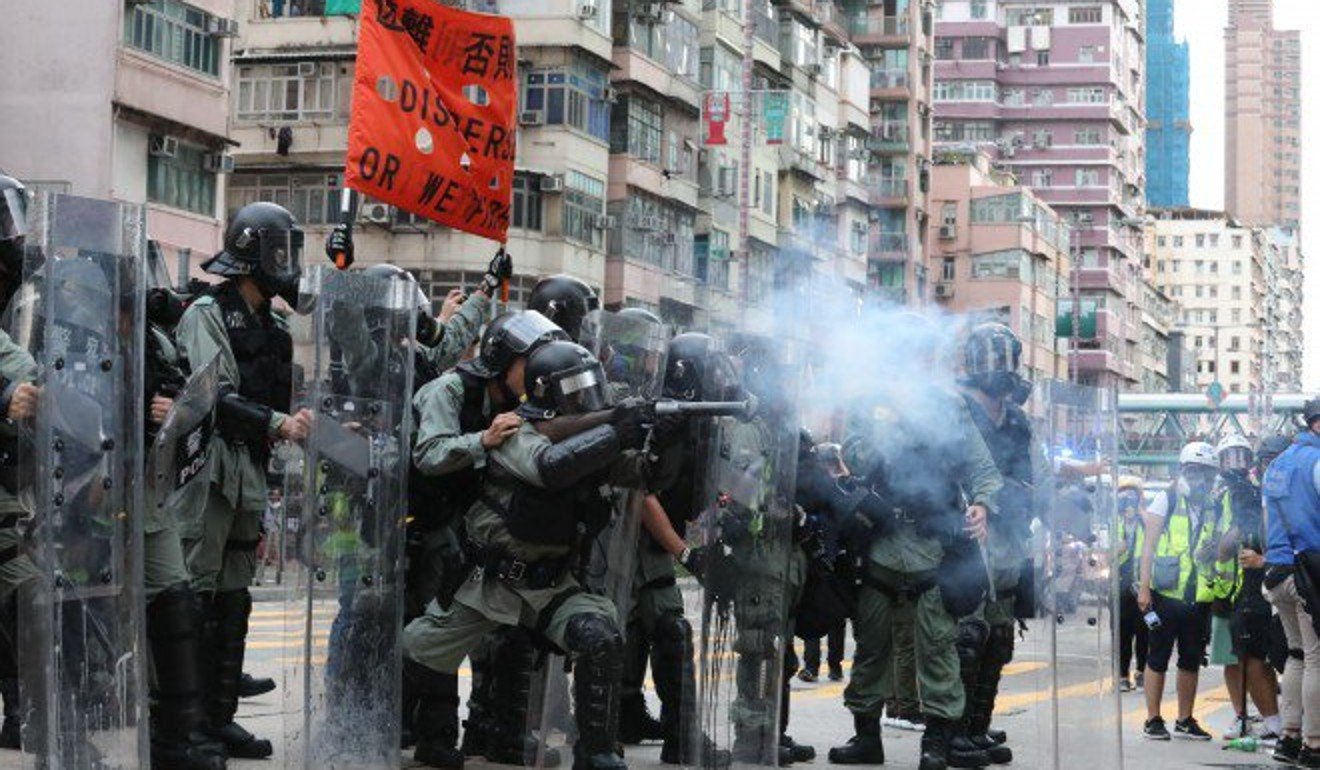
The young woman’s injury made protesters even angrier with police, whom they accused of brutality, and triggered more protests, including those at Hong Kong International Airport.
For his reports, Scotford gathered real-time information from social media and relied on Google Translate and speaking to people on the street.
“You have to put in the time to understand, but protesters are keen to explain,” he says.
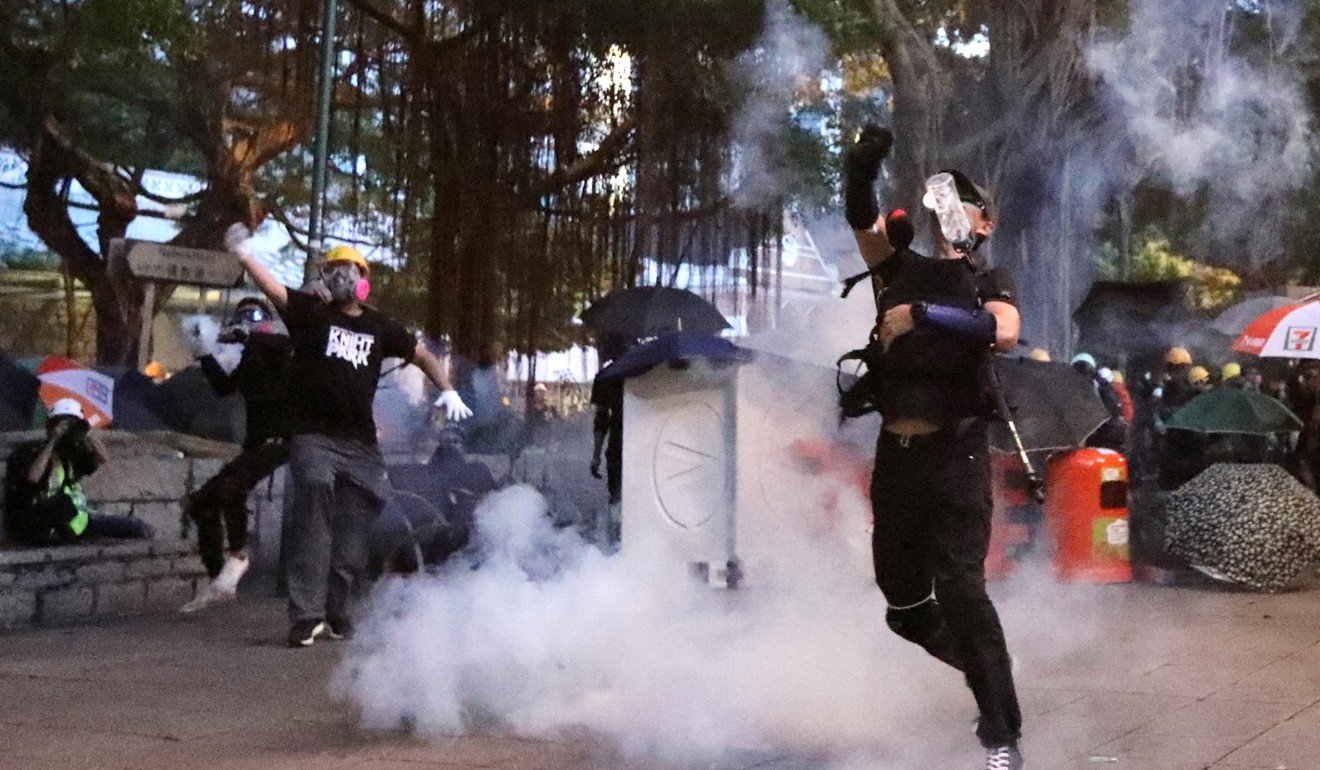
Scotford, who has since returned to Costa Rica, said: “I wanted to tell the story of the protesters.”
His Facebook page has more than 50,000 followers, a far cry from the days when he received only about 300 likes for his posts in 2015. German IT professional Leo Weese, 29, who moved to Hong Kong seven years ago, was among the estimated 1.7 million people who marched peacefully in heavy rain from Victoria Park on August 18.
“Everyone here wants to make a difference,” he says.
Opinion: Too little, too late from Carrie Lam could still signal a new beginning
Despite the escalation of violence in recent weeks, he said: “Having lived in Europe, the protests [in Hong Kong] are still very tame.”
Weese finds Hong Kong unique, from the fish balls to the freedom, the free access to the internet and civic society.
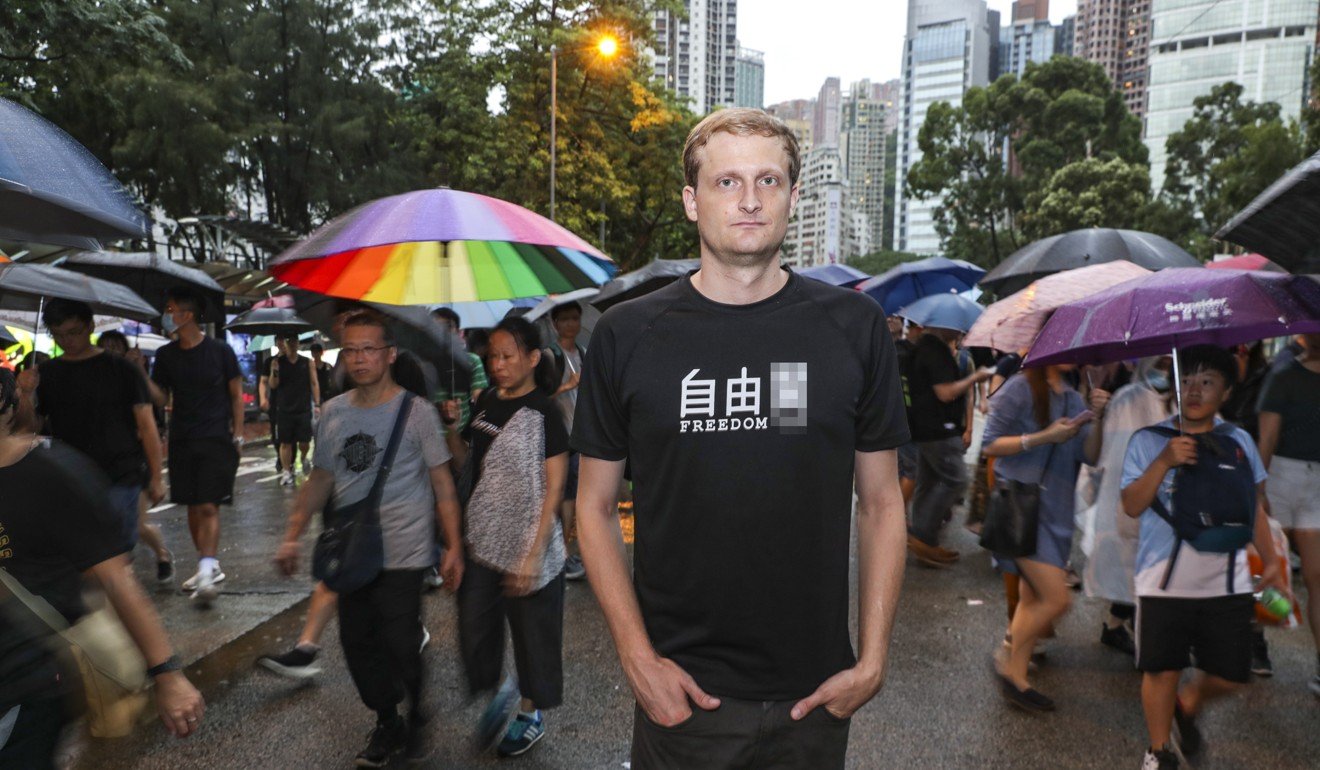
He has been active in pro-democracy protests in Hong Kong since 2012 and spreads the news of political developments via Twitter, podcasts and other social media.
“Hong Kong is my home. I’m going to fight for it. But if one day I find myself in court for protesting, I’ll have to leave,” he says. Until then, however, he says this is where his roots are.
“My friends and work are here. I am not an expat, I am a Hongkonger.”
Carrie Lam has ruled out police inquiry, so what can replace it?
Australian teacher Jennifer Eagleton, 59, arrived in Hong Kong in 1997 and got active in pro-democracy protests the very next year.
Describing her affinity for the city, she says: “I don’t use the term ‘expat’, which is someone who only lives here temporarily. I call myself an Australian Hongkonger.”
During the current unrest she has attended marches, helping to translate protest material and writing articles to spread the news of the protests.
“People feel their government ignores ordinary people,” she says. “They assume only Beijing is being listened to.”
A committee member of public policy think tank the Hong Kong Democratic Foundation and a member of the pro-democracy Civic Party, Eagleton says that over the past two decades she has noticed Beijing’s grip on Hong Kong tighten, with the erosion of the city’s freedoms.
“I don’t censor myself because my views are already out on the internet. If I start being afraid of what I say, I think that’s the end,” she says, adding she believes Hong Kong remains largely a safe place to live in.
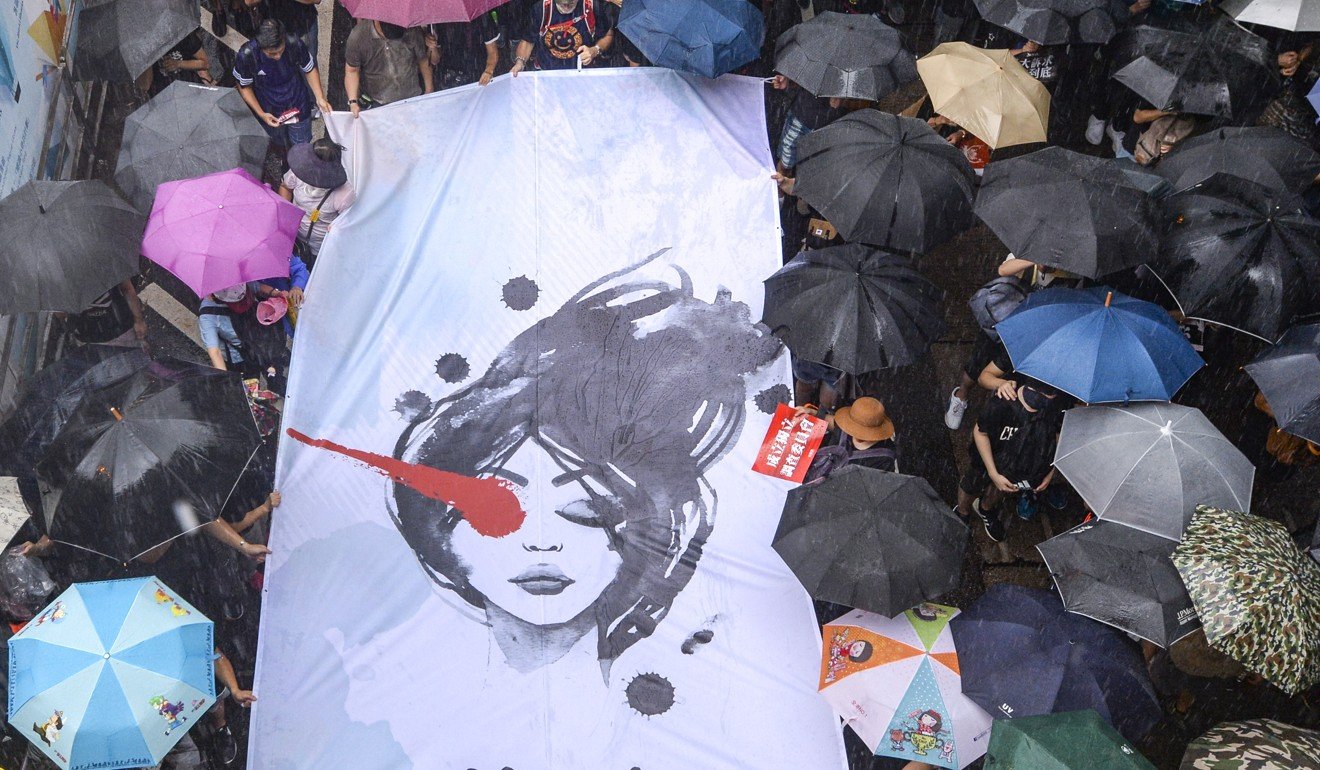
Every time I think the protests have gone too far, the Hong Kong police do something horrific, which only serves to further strengthen public support for the protests
Martin thinks that the escalation, including the throwing of petrol bombs, is confined to a small minority among the millions who protest peacefully, and has been in response to the actions of police.
“Every time I think the protests have gone too far, the Hong Kong police do something horrific, which only serves to further strengthen public support for the protests,” Martin says.
He and his wife were in their flat on Hong Kong Island one day when tear gas fired by police at protesters outside came inside.
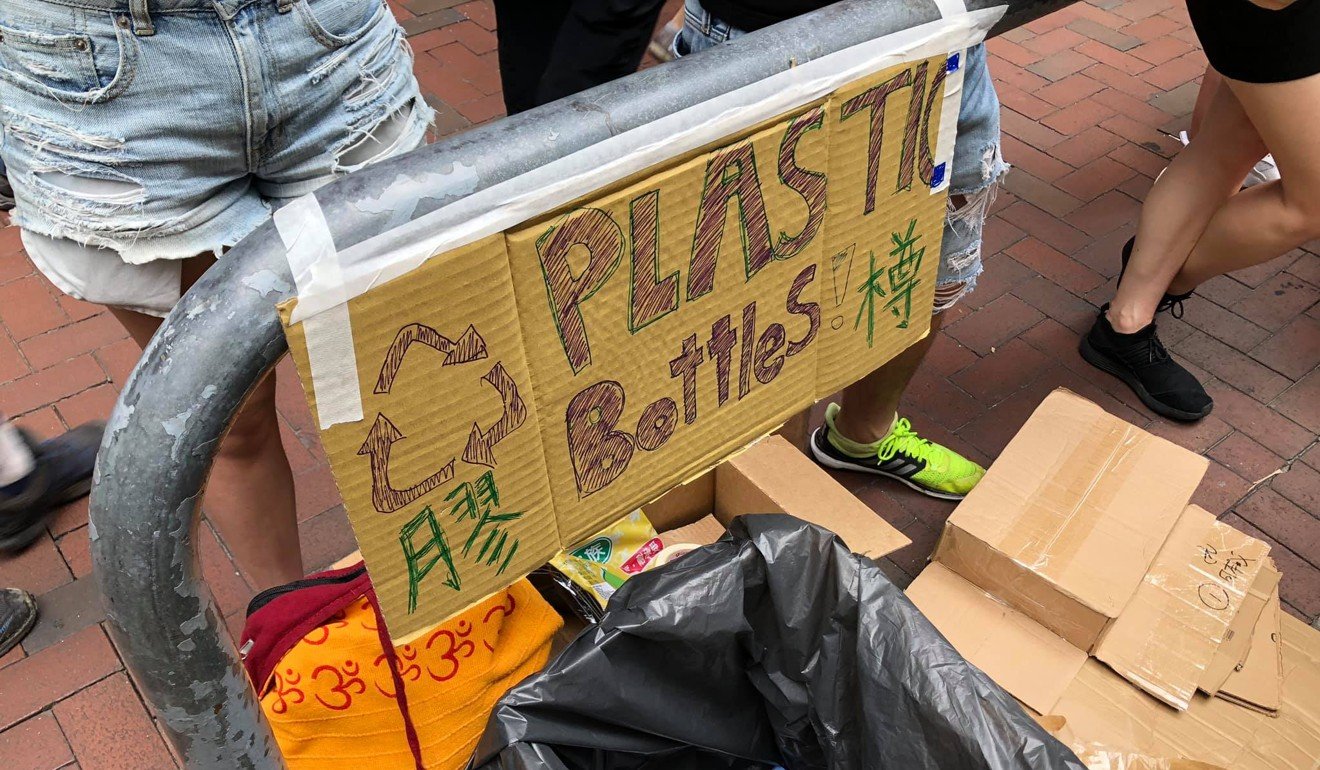
He went to the local police station to complain, but to little effect. Some officers listened, others were indifferent, he says.
Martin joined an estimated 2 million people on the streets for the June 16 march.
“It would be selfish of me, a foreigner, to enjoy the fruits of the city Hongkongers have created and welcomed me to, if I were not prepared to support them in maintaining their identity,” he says.
James, 27, a British primary schoolteacher and environmental volunteer was drawn to the action on the street for a different reason.
He was touched after observing protesters endure sweltering weather but was dismayed by the amount of litter left behind afterwards.
The June 9 march, which drew an estimated 1 million people – though police put the turnouts for both marches a lot lower – left a huge mess that needed cleaning up. For the protest a week later James and other volunteers set up a recycling station, and collected about 2,000 plastic bottles in the space of three hours.
He noticed the streets were much cleaner that day despite the bigger turnout, thanks also to many volunteers who helped to pick up litter.
“Hongkongers are amazing, in terms of both looking after the environment and telling the government how they feel,” he says.

